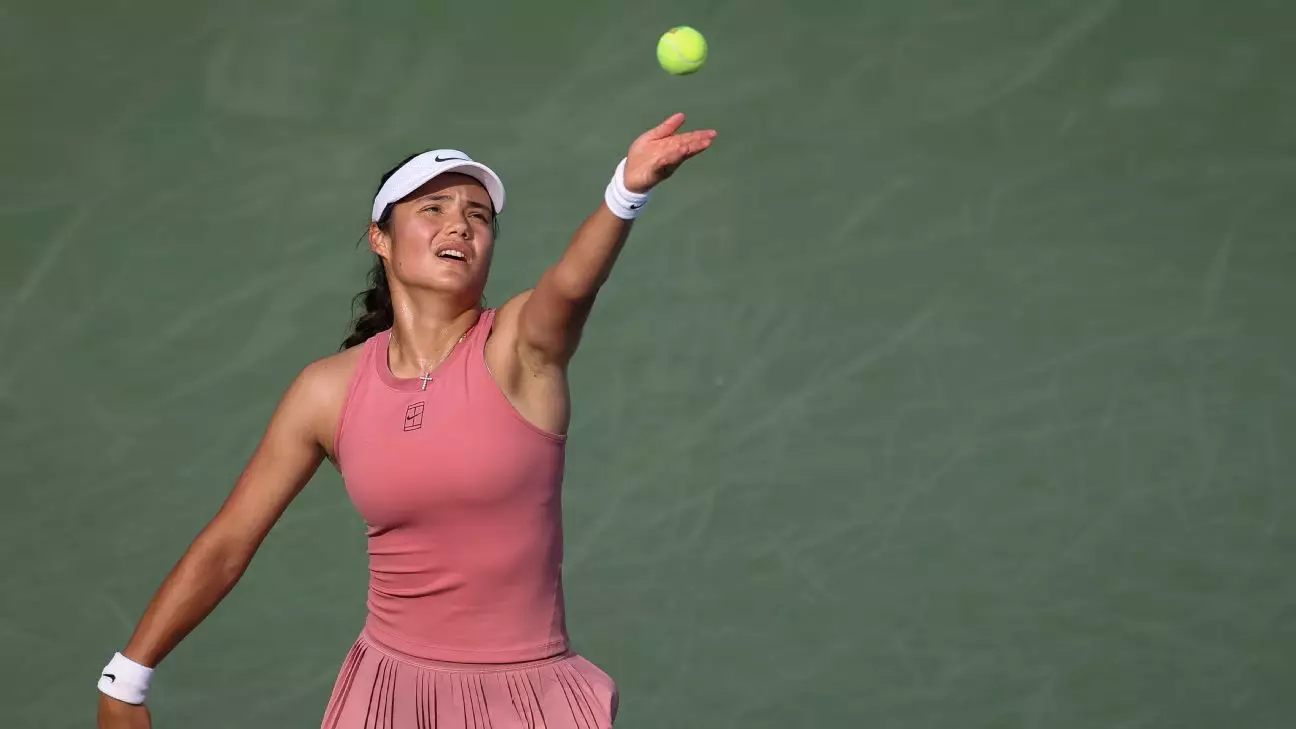Tennis, unlike many other sports, is a testament to resilience and fighting spirit. Recent matches have once again underscored this reality, reminding us that age and recent setbacks do not define a player’s potential or capacity to inspire. For instance, Venus Williams’ remarkable victory at age 45 illustrates the enduring nature of determination. Her win is not just a personal triumph but a message to the entire sporting community: perseverance can defy the rigid confines of age and injury. Such moments are rare but essential; they challenge conventional beliefs about diminishing returns and showcase that experience and grit often outweigh fleeting physical prowess.
Simultaneously, the tournament revealed the harsh reality of the sport—early exits, injuries, and losing streaks. Emma Raducanu’s recent victory over Marta Kostyuk, who has been struggling with form, highlights how moments of resilience can serve as turning points. Raducanu, a young star with a significant victory at the US Open, demonstrates that talent combined with mental toughness remains vital. Her upcoming match against Naomi Osaka or Yulia Putintseva showcases her potential to challenge reigning champions and carve her path forward despite the volatility of her recent performances.
Challenges Facing Rising Talents and Established Icons
The tournament also shines a spotlight on the difficulties faced by emerging talents and seasoned veterans alike. Marta Kostyuk’s prolonged slump—marking her sixth consecutive first-round loss—raises questions about the unpredictability of progress in professional tennis. Such streaks expose the mental and physical toll players endure and the importance of resilience beyond just winning matches. Her situation underscores that success is rarely linear, and even promising players can experience lengthy periods of hardship.
On the men’s side, the struggles are evident yet different in nature. Lorenzo Musetti’s absence due to injury and his subsequent early exit at Wimbledon serve as stark reminders of how fragile athletic careers can be. Musetti’s physical setbacks have hampered his momentum, illustrating the fine line between success and setbacks. Cameron Norrie’s victory over Musetti is more than an upset; it symbolizes the importance of consistency and adaptability amid adversity.
Meanwhile, Holger Rune’s withdrawal due to injury emphasizes the unpredictable toll professional sports take on players. Such withdrawals not only affect individual careers but also reshape tournament dynamics, putting even the most talented players at risk of losing momentum. These challenges highlight that resilience isn’t only about winning but also about managing setbacks, rebuilding strength, and maintaining focus in the face of obstacles.
Redefining Age and Excellence in Tennis
Perhaps the most inspiring story of the tournament was Venus Williams’ win. At 45, she has defied the expectations set by her years and physical wear. Her performance demonstrates that passion and dedication can sustain excellence beyond the conventional age limits. Williams’ victory is a powerful reminder that history and experience are invaluable assets, often giving veterans an edge over younger, less experienced competitors.
Her achievement also revitalizes conversations around aging in sports. It pushes athletes and fans alike to reconsider what is possible at any age, fostering a broader narrative of perseverance and self-belief. Williams’ success affirms that the human spirit in sports isn’t confined by numbers but is driven by unyielding determination to compete, improve, and inspire.
In essence, these stories from the tournament serve as a microcosm of the broader tennis landscape: a persistent battle between youth and experience, triumph and trial, hope and adversity. The athletes who continue to push boundaries amid setbacks exemplify the true spirit of the sport. Tennis is more than just a game of points; it is an ongoing celebration of resilience that inspires us all to persevere against odds.

